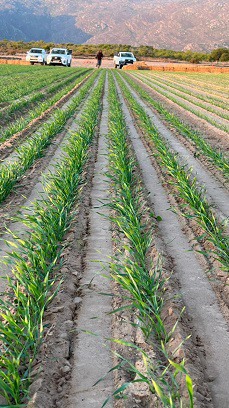 In the Sandveld, better known for its potatoes, Knapdaar Agri grows onions on 120 hectares. They have been lifting onions since January (Northern Cape’s onion season ended earlier because of rain) and now they are midway through their season, says Arno van der Merwe, while busy planting onions for the next season.
In the Sandveld, better known for its potatoes, Knapdaar Agri grows onions on 120 hectares. They have been lifting onions since January (Northern Cape’s onion season ended earlier because of rain) and now they are midway through their season, says Arno van der Merwe, while busy planting onions for the next season.
Right: Onions from the Sandveld (photos supplied by Knapdaar Agri)
“Onions give you more room in its marketing than potatoes. The fact that you can store onions reduces the risk,” he says. “We’ll be on the market with our onions until the end of July and replanting begins early in August.”
It has been a steady onion year with fair prices, he says, with the majority of their onions supplied to the RSA Group market agents at the Johannesburg and Durban municipal markets.
Onion deliveries to Durban were disrupted by the floods and concomitant power outages and for a few days the municipal market had no diesel for its generators. Arno notes that their agents were remarkable in how they managed under the circumstances.
Potential to expand African onion exports
Buyers from Namibia, Botswana and Angola buy large quantities of onions on the Johannesburg municipal market (although at the moment Botswana’s border is closed to South African onion imports).
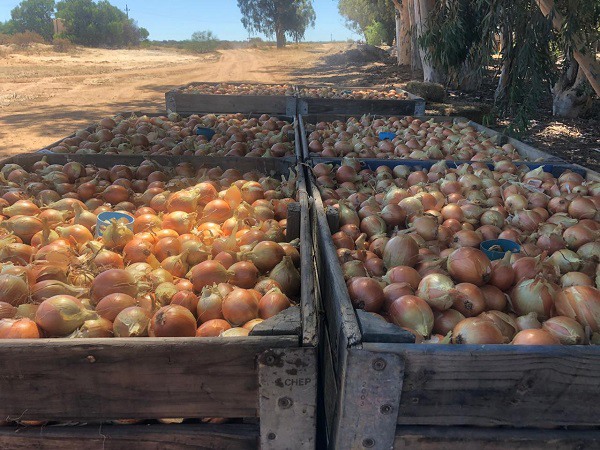
Beyond these neighbouring countries, there are definite export opportunities in the rest of Africa, he believes. Knapdaar markets its onions in Africa in association with the online trading platform Nile Ag.
Knapdaar has during previous seasons, if there were opportunities in Europe, supplied onions to a Dutch buyer (although it doesn’t make financial sense every year; he observes that it’s difficult for farmers who receive zero government subsidy to compete with heavily subsidized European farmers).
Blueberries harvested counterseasonally to onions
Fitting neatly into their onion schedule are the 10ha of covered, openland blueberries grown for Berryworld. Peak harvesting is usually towards the end of October.
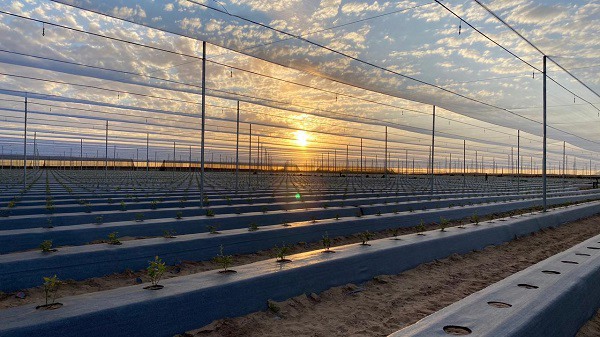 Blueberries are harvested during springtime
Blueberries are harvested during springtime
Good winter rains replenished water sources and their water quality is very high, he points out, of which the source is in the nearby Piketberg mountain.
Processing potatoes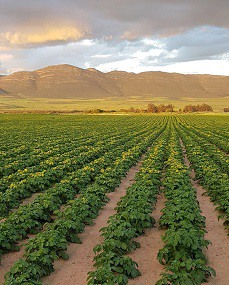 From November Knapdaar supplies Simba, a South African potato chip manufacturer, with processing potatoes. Arno says that the chip manufacturer has offered a good contract price this year, supporting them with the steep rise in production costs.
From November Knapdaar supplies Simba, a South African potato chip manufacturer, with processing potatoes. Arno says that the chip manufacturer has offered a good contract price this year, supporting them with the steep rise in production costs.
Imported fertilisers are on average 80% more expensive this year than last; it has led them to the decision not to plant table potatoes this year.
Moreover, in their conversations with their market agents it’s clear that purchasing power is under pressure among South Africans. “You can see people are living from month to month, there’s not much extra disposable income,” he says.
Finally, Knapdaar grows rooibos tea on 200ha for Carmién in Piekenierskloof. Arno remarks that rooibos prices aren’t great at the moment because the market is full with stock carried over. A rooibos shrub is sprayed only once a year, after harvest, and replaced after four seasons.
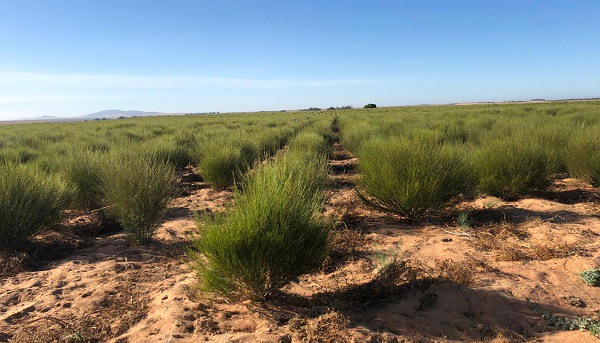 Shrubs of South African rooibos tea
Shrubs of South African rooibos tea 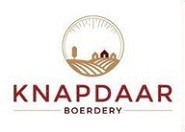 For more information:
For more information:
Arno van der Merwe
Knapdaar Agri
Tel: +27 22 912 4811
Email: arno@knapdaar.co.za
